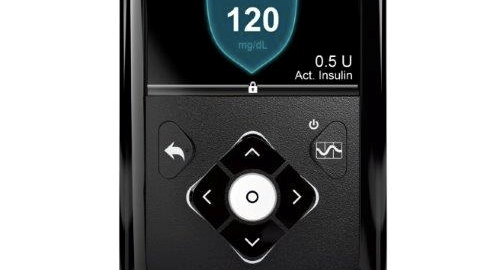First artificial pancreas to be marketed for the treatment of diabetes

The end of September 2016 marked the first FDA approval of an artificial pancreas for the treatment of type 1 diabetes1. This new device measures the patient’s glucose levels every 5 minutes and determines whether and how much insulin needs to be given. The new treatment promises better control of glucose and a significant easing of the burden of the treatment.
Diabetes remains a prominent worldwide health challenge. Over 400 million people worldwide suffer from either type 1 or type 2 diabetes and many rely on insulin administration to prevent short-term high blood sugar and in the long-term, serious complications including kidney failure, blindness and nerve damage.
The majority of insulin-using diabetic patients manually measures their glucose values several times a day and then administers a dose of insulin based on the measures value. In more sophisticated methods, continuous measurements are performed by a built in sensor and pumps are available that negate the need for frequent injections. A combination of the two, however, was not yet available. Researchers have for quite some time been attempting to synchronize real-time glucose measurements with automatic administration of insulin in a ‘closed-loop’ system, which has come to be known as the artificial pancreas.
A major challenge in current diabetes treatment is that every patient has a different insulin requirement. This means that a certain glucose measurement cannot be met with the same dose of insulin in every diabetic patient. Experienced insulin users learn how to anticipate insulin use depending on meals and physical activity, but the system remains imperfect. The personalized synchronization of glucose reading and insulin delivery is a major advantage that the artificial pancreas can offer.
Various clinical studies have been performed using an artificial pancreas. They have generally shown superior glucose control over conventional insulin therapies2. The clinical trial that led to approval of this artificial pancreas device (the MiniMed 670G, which was developed by Medtronic) examined its use in 123 patients with type 1 diabetes. No adverse events were reported in the trial. The FDA has required that a post-market study be performed to assess the effectiveness of the Minimed 670G in a real-life setting.
It is unclear when the device will become available, but Francine Kaufman, chief medical officer of the Diabetes Group at Medtronic, says, “We are committed to preparing for commercial launch as quickly as possible”.
Resources:
- http://www.fda.gov/NewsEvents/Newsroom/PressAnnouncements/ucm522974.htm
- Hood Thabit, Roman Hovorka. Coming of age: the artificial pancreas for type 1 diabetes. Diabetologia, June 2016


